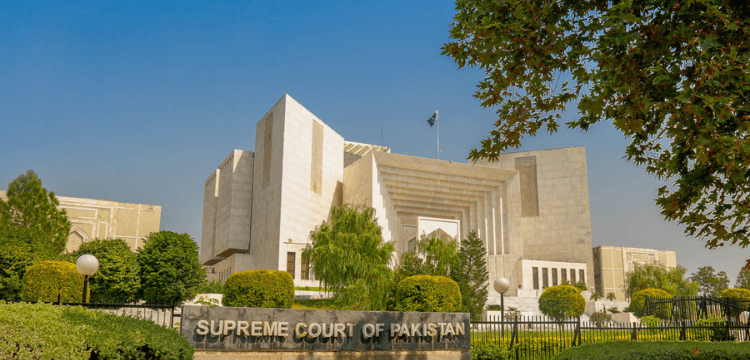[vc_row][vc_column][vc_column_text dp_text_size=”size-4″]ISLAMABAD: The Supreme Court of Pakistan has questioned the legal authority of customs officials operating within the country, observing that their focus is on seizing personal belongings of citizens instead of preventing smuggling at border crossings.
The three-judge bench, headed by Chief Justice Umar Ata Bandial, and comprising Justice Ayesha Malik, and Justice Athar Minallah, heard a case on customs authority, prompting inquiries into the lawfulness of officials’ actions in city operations, market raids, and checkpoint setups.
The court stressed the need for a clear understanding of customs officers’ powers and jurisdiction to prevent the illegal trade of goods, including smuggled dollars, wheat, and fertilizers to Afghanistan.
Judge Ayesha observed that the customs officers focused more on individual activities than they did on preventing smuggling.
She continued by saying that rather than focusing on where these products were imported from, the customs authorities were more interested in seizing the vehicles and other property of the individuals.
She questioned under what legal authority the customs officers had set up checkpoints and conducted market raids.
The primary query, she continued, related to the authority and purview of customs officials.
Judge Minallah questioned the customs officers over the applicability of the smuggling law to an item discovered in the city.
He added that the Customs officials were not responding to the court’s queries properly and they needed to be more prepared.
Justice Ayesha observed that the Customs officials operated in the cities every day, far from the borders.
CJP Bandial inquired whether the seizure of goods on the highway near Multan would be smuggling or a matter related to customs duty.
“Is it correct for the customs authorities to stop citizens inside the city and ask for documents?” he asked.
He recommended that the customs officials should facilitate the economy besides seizing smuggled goods.
The court later adjourned the hearing for two weeks, giving time to the customs authorities to prepare for the case.
In a conference conducted in December of last year, it was revealed that the government had done nothing to stop the smuggling of money into Afghanistan using orange crates and with the complicity of law enforcement officials.
During the conference, it was also revealed that the Customs Act did not follow the new restrictions placed on outward currency flow, which made it difficult to file criminal charges against the smugglers.
The huddle attendees voiced their worries about the smuggling of money, imported wheat, and fertiliser into Afghanistan.
In order to bring economic and financial stability to the nation, Finance Minister Ishaq Dar emphasised the need for the appropriate authorities to develop a strong and proactive strategy to stop the cross-border smuggling of various goods.[/vc_column_text][/vc_column][/vc_row]











